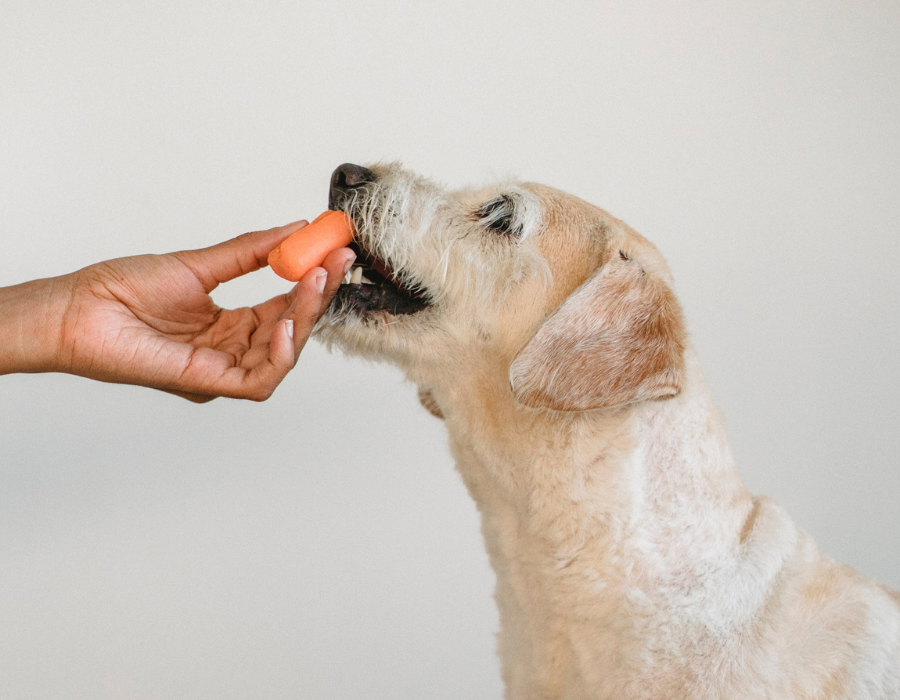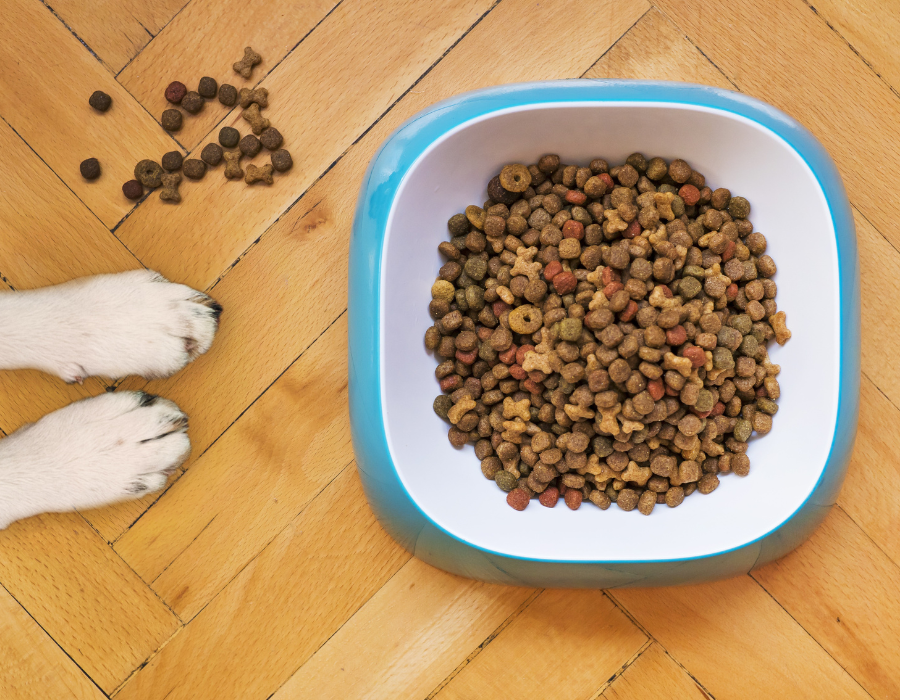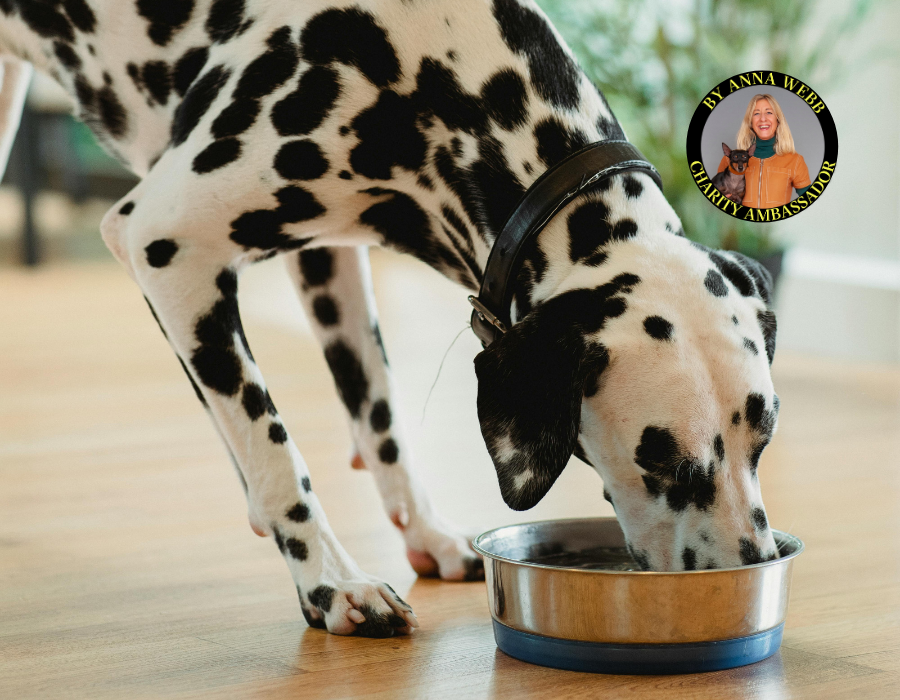Achieving Optimum Dog Health
I was lucky to have grown up in the 1970’s feeding our family dogs, as learnt ’back in the day’, on meats, especially lamb’s hearts, leftovers, veggies, and raw bones from the butcher.
When I brought Molly, my first Miniature Bull Terrier home in 2002, I was confused when, at our first vet appointment, we were gifted a bag of kibble – apparently the new way of feeding dogs for maximum health. On the way home I quickly reflected on this and as we lived near an excellent butcher’s shop, I thought I didn’t need this bag, especially as Molly’s breeder had recommended that I fed her on raw green tripe!
My passion to feed Molly for optimum health inspired my study on canine (and feline) nutrition at the College of Integrated Veterinary Therapies.

Nutritional Science
The field of nutrition changes almost daily with science increasingly confirming the health value of fresh and functional whole foods on a human level, but this is the same for dogs.
These foods should be ‘bio-available’, meaning the type of food that can be digested, broken down and absorbed seamlessly into the bloodstream from the small intestine, before being circulated to every cell in the body and fuelling them with ‘micro-nutrients’ and energy.
Thinking of food as impacting positively on cellular expression isn’t new, but what is new is realising that many overly processed options can be classed as an ‘environmental stressor’; sometimes referred to as an ‘anti-nutrient’, which has been defined as: “a toxic contagion in your surroundings that accumulates over time to impact negatively on health and mental wellbeing.”

Food as a Pillar of Health
Appreciating the role of food as a ‘pillar of health’, the new science of Epigenetics investigates the interplay between our environment, not least nutrition, that either impacts positively or negatively to genetic expression.
Determining whether nutrition promotes health or creates disease, each of our trillions of cells is surrounded by a semi-permeable structure called the Epigenome. This is responsible for selecting and transferring nutrients like metabolites into the Genome – this is where DNA is stored in almost every cell.
Ideally only ‘good’, appropriate nutrients should be allowed into the genome; but inevitably in our modern environments, many contaminants like sugars, antibiotics, and chemicals will also enter through its semi-permeable structure and over time, potentially contribute to distorting genetic expression, promoting inflammation and disease.

The Transformative Power of Food
Dogs can’t choose and buy the food they eat; they are dependant on their pet parents to do that for them. Having advised on many dog nutritional consults, I’ve seen how dogs have been transformed by a switch from ultra-processed food to either a raw or cooked balanced and complete species appropriate alternative.
This is in both healthy dogs and those suffering from a condition; be it kidney issues, diabetes, liver problems or pancreatitis, where tailored, natural diets support an integrated wellness strategy.
There is research that proves that puppies weaned to a raw, balanced and complete diet have a greater diversity and a higher proliferation of the good ‘Bifidobacterium’ in their microbiomes, compared to puppies weaned onto an ultra-processed, sterile kibble option.

Adding Superfoods to Your Dog’s Diet
If we really are what we eat, simply being aware of some simple superfoods to add to any diet, like the age-old remedy bone broth, could enhance a meal’s functional nutritional element, arguably most notably when added to ultra-processed choices. This broth is packed with functional nutrients, including an abundance of proteins, especially collagen, glucosamine, chondroitin, electrolytes and sodium.
Science has investigated its impact on the microbiome (where the immune system resides); the results suggest that bone broth not only strengthens the gut lining, but promotes ‘good’ bacteria whilst reducing ‘bad’ bacteria in the microbiome, and increases the diversity of bacteria species.
It’s as if bone broth naturally creates balance or homeostasis, which is a key element in maintaining optimum health.
It suggests that perhaps we really are ‘what we eat’.
About the Author – Anna Webb

As a Canine Nutrition and Behaviour expert, Anna combines her psychology degree, with study at the College of Integrated Veterinary Therapies (CIVT) and over 20 years of experience. Host of the award-nominated A DOG’S LIFE podcast, she lives in London and is owned by Prudence, a Miniature Bull Terrier and Mr. Binks, a re-homed English Toy Terrier. www.annawebb.co.uk






